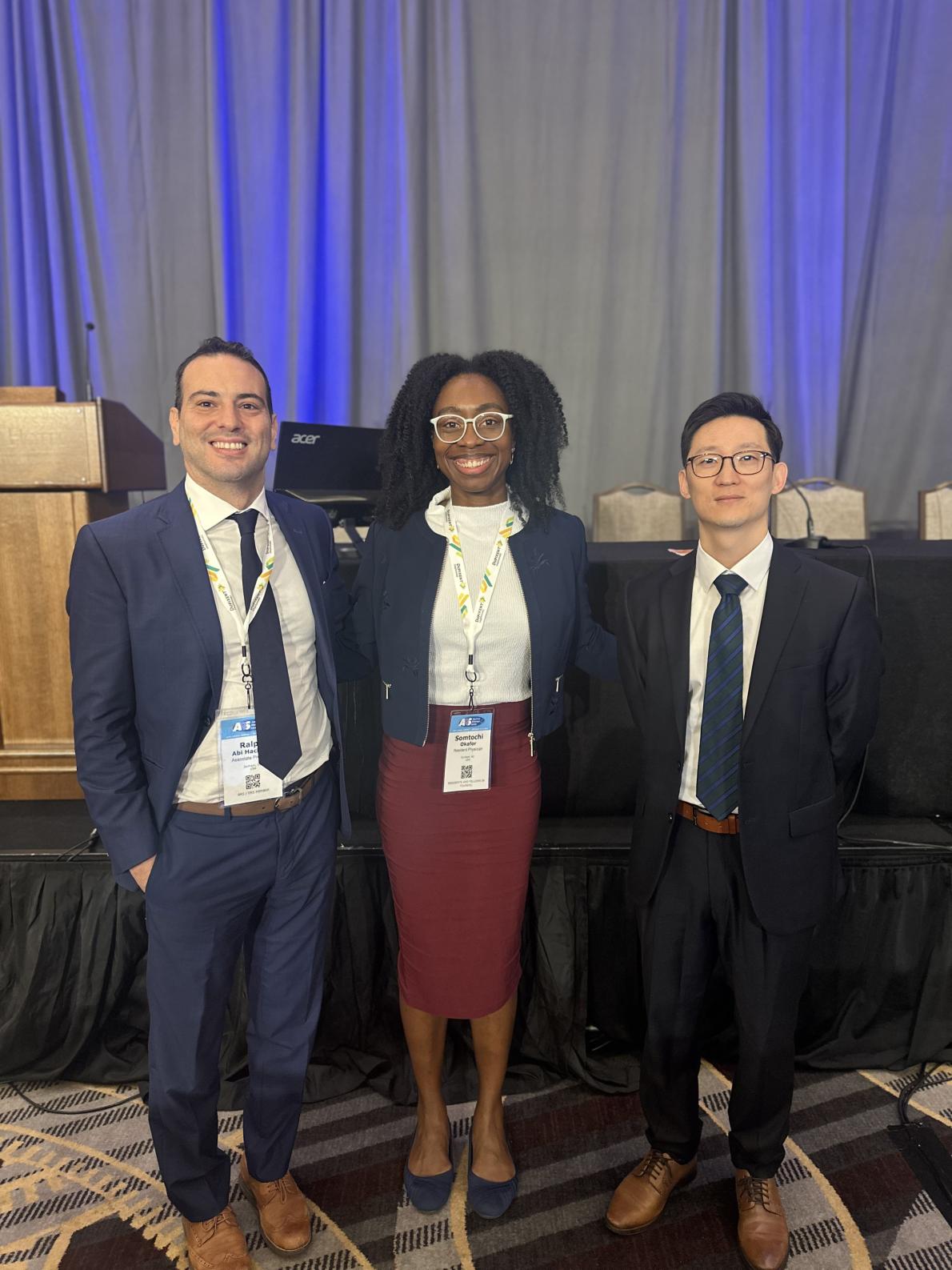First Rhinology Quantitative Patient Preference Study Reveals Insights into Patients’ Treatment Choices

Biologic medications approved by the U.S. Food and Drug Administration in recent years have revolutionized the management of recurrent nasal polyps, offering a viable alternative to revision sinus surgery. Patients now have treatment options to consider to help with this frustrating condition.
To gain a better understanding of what drives their choices, Duke Head and Neck Surgery & Communication Sciences (HNS&CS) partnered with Duke Clinical Research Institute (DCRI)’s Center for Health Decision Making and GSK to conduct the first quantitative patient preference study in the field of rhinology.
Somtochi Okafor, MD, a fourth-year otolaryngology resident at Duke, presented the results, which are pending publication, during the main session of the American Rhinologic Society in late September 2023. Also on the study team: David W. Jang, MD, Ralph Abi Hachem, MD, and Revital Benvenisti (clinical research coordinator) of Duke HNS&CS; Jessie Sutphin and Shelby D. Reed of DCRI, and Jared Silver and Arijita Deb of GSK.
The 151 study participants were Duke patients from 2013 to 2022 who had undergone one or more surgeries for nasal polyps. To quantitatively measure preferences for treatment features and outcomes, a discrete-choice experiment was used, meaning participants were asked a set of hypothetical questions with variable outcomes.
Participants were first asked to suppose that their nasal symptoms were as severe as they had been prior to their last surgery. They were then randomly assigned a set of 12 questions that offered a series of choices between treatment options (monthly injections of biologics, surgery, or no treatment) described using various combinations of select attributes.
Three distinct groups of patients emerged: those who preferred surgery regardless of treatment outcome, those who preferred medication regardless of treatment outcome, and those who prioritized efficacy; i.e., were willing to do the treatment that would provide them with the best outcome. The results suggest that treatment decisions are complex and involve clinical and financial factors as well as patient preferences.
“The study’s insights into treatment choices could help healthcare providers have better conversations with patients about their options and tailor care to their individual goals,” Dr. Jang says. “To build on these findings, we would like to conduct a longitudinal study to see if patient preferences change over time.”
To schedule an appointment with a Duke Head and Neck Surgery & Communication Sciences expert, call 919-439-1870.
To refer a patient, call 800-633-3853 or use DukeMedLink.